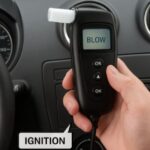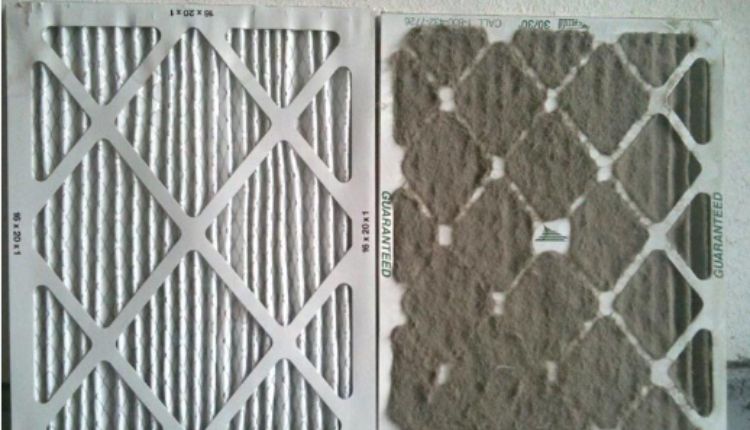The Hidden Danger That’s Costing You Money and Comfort
Have you changed your HVAC filter lately? That small, often forgotten part does a big job in your home’s heating and cooling system. The effects of a dirty HVAC filter go way beyond dusty air – they can lead to complete system failure when you need your heating or cooling the most. Think of your filter like the air mask you’d wear in a dusty place. When it gets clogged, it’s harder to breathe. The same thing happens to your HVAC system with a dirty filter.
Most homeowners don’t realize that this simple maintenance task could be the difference between a system that runs smoothly for years and one that breaks down during the hottest day of summer or the coldest night of winter. Let’s look at why those dirty filters cause so many problems and what you can do about it.
What Happens When Your Filter Gets Clogged
Your HVAC system works hard to keep your home comfortable. The filter’s job is to catch dust, pet hair, pollen, and other particles in the air. Over time, these particles build up and block airflow. When air can’t flow freely, your system has to work extra hard. It’s kind of like trying to suck a thick milkshake through a skinny straw – it takes a lot more effort!
This restricted airflow creates a domino effect throughout your entire system. Parts that were designed to work with a certain amount of air passing through them suddenly have to adapt to much less. This puts stress on almost every component in your HVAC unit, from the motor to the cooling coils to the compressor.
Your HVAC Motor Gets Overworked
When your filter is dirty, your system’s blower motor has to push much harder to move air through the clogged filter. This is like you having to run uphill instead of on flat ground – it takes more energy and puts more strain on the motor. Over time, this extra strain can wear out the motor much faster than normal.
This extra work makes your motor use more electricity, which means higher energy bills for you. You might not notice right away, but over a few months, a dirty filter can add hundreds of dollars to your energy costs. Many homeowners blame rate increases for higher bills when the real culprit might be that dirty filter forcing their system to work overtime.
Frozen Coils: A Chilly Problem
With a dirty filter, another problem can pop up – frozen evaporator coils. These coils need good airflow to work right. They’re designed to absorb heat from your home, but they need warm air passing over them constantly to function properly.
When the airflow is blocked by a dirty filter, the coils can get too cold and freeze up. Once they’re covered in ice, they can’t do their job properly. This means your system runs longer while providing less cooling. When the ice eventually melts, it can also cause water damage in your home. Many service calls for water leaks around HVAC units can be traced back to coils that froze because of dirty filters.
Your System Might Shut Down When You Need It Most
Modern HVAC systems have safety features that turn them off if they get too hot. This is actually a good thing – it prevents bigger problems like fires or permanently damaged components. But when your system shuts down because of overheating caused by a dirty filter, it leaves you without heating or cooling when you need it most.
These shutdowns usually happen during extreme weather – like the hottest day of summer or the coldest night of winter. That’s because your system is working hardest during these times, which makes overheating more likely. Nothing is worse than waking up freezing on a winter night or coming home to a sweltering house in the summer, especially when the fix could have been as simple as changing a filter.
Compressor Damage: The Big, Expensive Problem
If your system runs with a dirty filter for too long, you could damage the compressor. This is like the heart of your HVAC system. It circulates refrigerant through the system, making the cooling process possible. When the compressor has to work with reduced airflow, it can overheat or get damaged in other ways.
Replacing a compressor often costs thousands of dollars. In many cases, when a compressor fails, homeowners end up replacing the entire outdoor unit or even the whole system. What started as a simple dirty filter can turn into a major expense if you don’t take care of it. Regular filter changes are like cheap insurance for one of the most expensive appliances in your home.
Your Home’s Air Gets Dirtier
A clogged filter can’t clean your home’s air properly. This means dust, allergens, and other yucky stuff keeps circulating throughout your house. Even worse, your system can start to blow dust from inside the ductwork back into your living spaces.
For family members with allergies, asthma, or other breathing issues, this can make symptoms worse. Many people don’t connect their increasing allergy problems with their HVAC maintenance, but the link is direct. Clean filters mean cleaner air for everyone in your home, and that means better health and comfort for your family.
Warning Signs You Should Watch For
Your HVAC system will usually give you hints before a major breakdown happens. Here are some signs that might mean your filter needs changing:
- Higher energy bills than normal
- Weak air coming from your vents
- Your system runs longer than it used to
- Strange noises from your HVAC unit
- Some rooms feel too hot or too cold
If you notice any of these things, check your filter first! It’s the easiest fix you can try. Taking five minutes to inspect your filter could save you from an expensive repair call or uncomfortable days of waiting for a technician during the busy season.
The Easy Fix: Change Your Filters Regularly
The good news? Preventing these problems is super simple and cheap. Most home HVAC filters should be checked every month and changed every 1-3 months. This small maintenance task offers probably the biggest return on investment of any home maintenance you can do.
How often you need to change yours depends on a few things: how many people live in your home, if you have pets, how clean the air is where you live, and what type of filter you use. Homes with pets or in dusty areas might need monthly changes, while others might go 2-3 months between changes. The important thing is to check regularly and change the filter before it gets too dirty.
Picking the Right Filter for Your System
Not all filters are the same. Filters have ratings called MERV, with numbers from 1-20. Higher numbers mean the filter catches smaller particles. This sounds great for air quality, but there’s a catch that many homeowners don’t know about.
Higher-rated filters are also denser, which can restrict airflow even when they’re clean. Most home systems work best with filters rated 8-13, giving you clean air without making your system work too hard. Using a filter with too high a MERV rating can cause the same problems as a dirty filter! Ask a professional about the best filter type for your specific system if you’re unsure.
Making Filter Changes a Regular Habit
The hardest part for most homeowners isn’t understanding why clean filters matter – it’s remembering to change them! With our busy lives, it’s easy to forget this simple task until problems start. Here are some easy ways to remember:
- Set reminders on your phone
- Sign up for a filter delivery service
- Check your filter when you pay your monthly bills
- Keep track of filter changes on a calendar near your HVAC unit
These simple tricks can help you never forget this important task again. Many homeowners find that subscribing to a filter delivery service is worth the small premium because the filters arrive regularly, serving as a physical reminder that it’s time for a change.
The Money Math: Prevention vs. Repairs
Let’s talk dollars and cents. A typical HVAC filter costs between $10-$30. Replacing it regularly might cost $40-$360 for the whole year, depending on how often you change it and what type you buy. That might seem like a lot for some paper and cardboard, but it’s actually one of the best investments you can make.
Compare that to repair costs from the effects of a dirty HVAC filter:
- Fixing or replacing a motor: $200-$650
- Cleaning or replacing evaporator coils: $400-$2,000
- Replacing a compressor: $1,500-$4,000
- Getting a whole new system: $5,000-$12,000
Those few minutes changing a filter look pretty good now, don’t they? Even if you just consider the energy savings, regular filter changes usually pay for themselves before you factor in avoided repairs.
Conclusion: Small Task, Big Benefits
The effects of a dirty HVAC filter are much bigger than most people realize. By changing your filter regularly, you can:
- Prevent costly breakdowns and repairs
- Make your HVAC equipment last longer
- Keep your home’s air cleaner
- Lower your energy bills
- Stay comfortable year-round
Taking care of this small maintenance task can save you big money and headaches down the road. Your future self will thank you! And remember – if you can’t remember the last time you changed your filter, today is probably a good day to check it.






